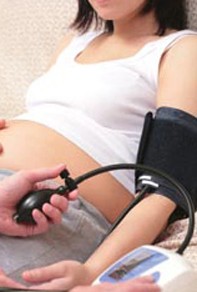Peer Reviewed
Feature Article Cardiovascular medicine
Management of chronic hypertension in pregnancy
Abstract
Chronic hypertension in pregnancy is not uncommon. The clinician needs to distinguish between new-onset and chronic hypertension and be aware of possible secondary causes, particularly chronic kidney disease.
Key Points
- About 10 to 12% of pregnancies are complicated by hypertension; 20% of these are due to chronic hypertension.
- Pre-eclampsia is the most likely event to complicate the pregnancy of a woman with chronic hypertension.
- Tests are indicated in all women with known chronic hypertension to assess the severity of the hypertension and to investigate possible secondary causes.
- Antihypertensive treatment is recommended when the systolic or diastolic blood pressure consistently reaches or exceeds 160 mmHg and 100 mmHg, respectively. Admission to hospital or an antenatal day-assessment unit may be required for pregnant women with such blood pressure levels.
- The decision to treat intermediate blood pressures of 140 to160 mmHg (systolic) or 90 to 100 mmHg (diastolic) is based on clinical opinion. Admission to hospital or an antenatal day-assessment unit is recommended for pregnant women with these blood pressures if new-onset proteinuria develops.
- Methyldopa and labetalol are currently the agents of choice in hypertensive pregnant women due to their efficacy and safety profile.
Purchase the PDF version of this article
Already a subscriber? Login here.

